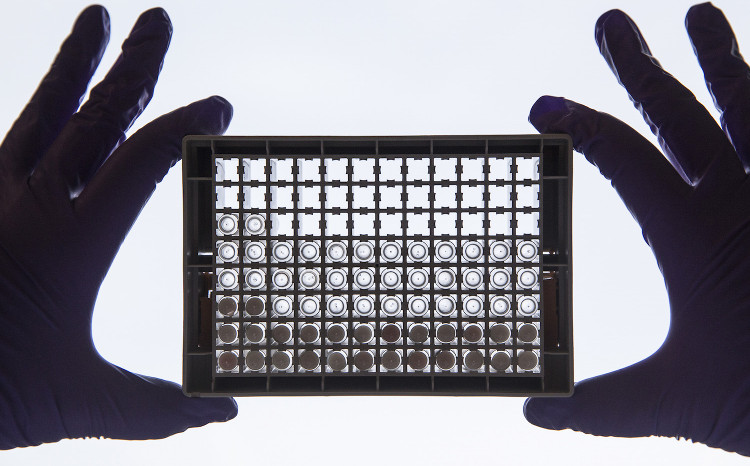Detection of new active ingredients that effectively treat lung cancer
A study by Roche Pharmaceuticals on the alectinid (Alecensa) active ingredient has shown positive results, slowing down 2-3 times the invasive process of lung cancer cells.
According to the researchers, the active ingredient Alectinib is capable of reducing the risk of cancer by 53% compared to the crizontinib active substance being used to treat lung cancer.
With this new discovery, alectinib is likely to become a second-generation anti-cancer drug used to treat adult lung cancer cells.

The active ingredient Alectinib is able to reduce the risk of cancer by 53%.
Lead researcher Alice Shaw of the Cancer Center of Massachusetts General Hospital (USA) emphasized that no one could imagine that delaying the spread of cancer cells was so long. Most targeted therapies for cancer can only be effective in about 12 months.
Researcher of the American Clinical Cancer Research Group (ASCO) John Heymach said that this second-generation lung cancer drug would work to delay the development of lung cancer cells more than two. year, and help prevent metastasis on the brain of the disease.
However, in order for alectinib to be widely used in practice, more studies are needed to ensure that the new drug can prolong the patient's life more than crizotinib.
There are about 12,500 Americans diagnosed with lung cancer each year when the test is positive.
- Canada applies 3D technology to treat lung cancer
- How is screening for early detection of lung cancer?
- Former 28-year-old athlete has lung cancer despite not smoking
- Black-radiated plants have active ingredients that fight cancer and HIV
- Cuba's forthcoming vaccine can treat lung cancer
- Cancer will increase strongly in Vietnam in the next 5 years
- Lung cancer and stages
- Why is lung cancer dangerous?
- Detection of the p53 gene inhibits the growth of cancer cells
- New step in lung cancer surgery
- Metformin can prevent lung cancer
- Simple way to prevent lung cancer
 Why is Australia the country with the highest cancer rate in the world while Vietnam ranks 100th?
Why is Australia the country with the highest cancer rate in the world while Vietnam ranks 100th? New drug causes cancer to 'starve'
New drug causes cancer to 'starve' Common cancers in men
Common cancers in men America's incredible discovery: The most feared cancer cell is love
America's incredible discovery: The most feared cancer cell is love